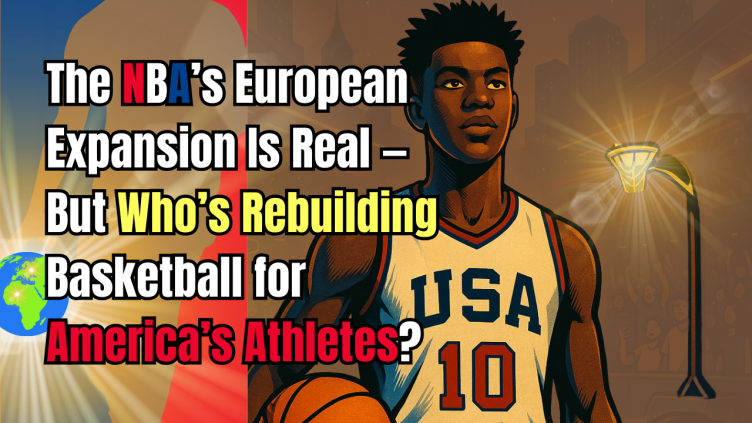
I argued that the NBA March 27, 2025, announcement confirmed its aggressive pivot toward Europe. A 16-team professional league signals a strategic shift from rebuilding America’s broken basketball development system.
The NBA’s global expansion may be a savvy business move. However, it leaves American athletes, particularly Black athletes, abandoned in a fractured, pay-to-play marketplace.
The Migration Report, cited by David Hein on November 7, 2024, reinforces what many have sensed. A record 1,654 international athletes are now flooding NCAA Division I basketball. This surge is not just about numbers. It is a direct result of global investment and structured systems outperforming America’s free-market chaos. A staggering 113% increase in global basketball transfers since 2010-11 shows that the U.S. is not just losing control of its homegrown sport. It’s failing its players in the process.
The International Wave and Its Roots
The FIBA/CIES data shows a seismic shift. International players, primarily from Europe, use the NCAA as an “alternative international development platform.” Back home, many face limited playing time. Argentina’s U21 players, for example, average just 3.1 minutes per game. So they bring their skills, experience, and tactical maturity to U.S. colleges.
Many are 19-21 years old with professional or semi-pro experience. They now have the opportunity and NIL benefits that enhance their development path. The result? International players now occupy 16–17% of NCAA Division I roster spots—and growing.
The trend is not random; it represents a decade-long transformation driven by global infrastructures. This includes NBA academies in Africa, partnerships with the Euroleague, and European club models that focus on fundamentals. In contrast, youth development in America remains chaotic and decentralized. The presence of AAU teams, high school showcases, and private trainers has created an expensive ecosystem that prioritizes athleticism over fundamental skills.
The game is evolving. America’s system is not.